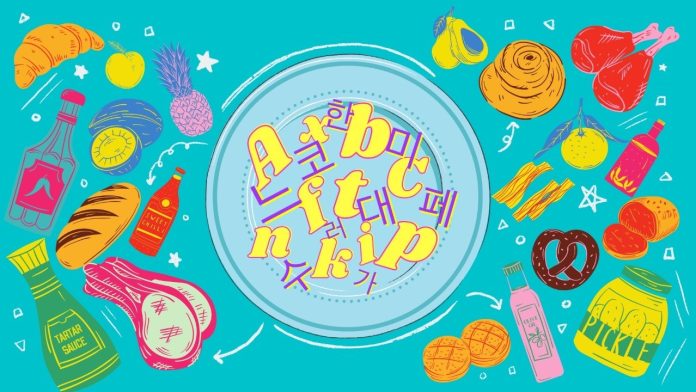It’s Saturday dinner and our family gathers at the table. A well-cooked rib-eye steak, along with mashed potato and salad, lies neatly arranged on each individual’s plate. On the left side of the table is a large bowl of hot rice to share; next to that, a pile of kimchi and a pack of dried seaweed. Lastly a boiling pot of jjigae, deeply seasoned with soybean paste, is placed in the centre. A rather odd combination of menus, right?
And yet this marriage of Western and Eastern flavours brings unique joy to my senses – the juicy oil of beef popping in my mouth, followed by the crunchy spice of kimchi, a spoonful of hot jjigae smoothly wrapping around my tongue, and finishing off with fresh salad greens soaked in sweet citrus dressing.
So, it’s not the food that’s leaving this bitter taste lingering in my mouth. The fusion meal is surely far less complex, and far more comprehensible to me, than the conversations exchanged around our table.
“Don’t you think the lettuce is growing too slowly?”
Mother rants about our backyard crops. She specifically says the word ‘lettuce’ in English, rather than using the Korean equivalent, ‘sangchu’. Her pronunciation is chewy and tough, like a piece of overcooked beef, coming out with three syllables let-tu-ce instead of two.
“Umma, it’s leh-tuhs, not let-tu-ce,” I correct her.
She ignores my comment and continues: “And the capsicum too, the leaves are…”
“Capsicum,” I intervene, emphasising the crunchy km sound at the end.
“Whatever. That’s not the point.” There is spice in her irritated voice. She sharply stabs her spoon into the jjigae, and takes a mouthful. The dinner continues.
These kinds of conversations are commonplace in our family, as much as our Western-Eastern meals are. Having migrated from South Korea to Australia in 2010, my older sister and I have mostly grown up in this country, but we can speak both English and Korean comfortably. Meanwhile, the English language abilities of my parents are still quite limited.
Bilingualism is not unusual in this contemporary generation that has been bred and raised by globalisation. According to Li Wei’s book, The Bilingualism Reader, one-third of the world’s population speaks two or more languages. Nevertheless, this story certainly does not, and cannot, speak for all immigrants or bilinguals; this is only a revelation of my personal experiences as a Korean-Australian. Just one serving of bilingualism, my own.
For me the term ‘globalisation’ does not provoke images of the United States and China battling each other with tariffs, nor the fact that there are now Nike factories in 42 countries across the world. For me globalisation is right here, right near us – it is in the Korean chilli paste we have inside the refrigerator of our Sydney home, and it is in the awkward bilingual conversation I exchange with my mother every day.
Not surprisingly, it is principally when I am with my parents that I enter what Indian-English scholar Homi Bhabha calls the ‘Third Space’ in his book, The Location of Culture. The ‘Third Space’ is a liminal, virtual space that bridges the interaction between different cultures, an “interruptive, interrogative, and enunciative” place I still fail to understand even with my ten years’ experience as an immigrant.
Here in this area of my bicultural life, the parent-child dynamic of our family is reversed. Whether I am making a phone call to my mum’s car insurance, or filling in a Centrelink application form for my dad, the ambiguity of my own role in this ‘Third Space’ leaves me nursing contradictory feelings – some pride in my abilities on one hand, and guilty embarrassment about my parents’ limited English on the other.
When I instruct my mum on the correct pronunciation of ‘lettuce’ at the dinner table – as if she were a child learning to speak – I feel secretly ashamed of the discourtesy I’ve shown in assuming my superiority as the more fluent English speaker. Paradoxically, after years of childhood struggles to learn English myself, I was conducting my own “Speak Good English” campaign at home, not far from the Singaporean government’s movement in the early 2000s to forbid the hybrid ‘Singlish’ language and enforce correct usage of British English.
 This – the contradiction and irony at the core of my bilingual life – is what’s leaving the bitter taste lingering in my mouth.
This – the contradiction and irony at the core of my bilingual life – is what’s leaving the bitter taste lingering in my mouth.
A couple of nights later I visit a restaurant in Strathfield, the so-called ‘Koreatown’ of Sydney, with my friends. As we look at the menu the waiter approaches, and his eyes, lost for a moment, immediately fix on me, the only Korean-looking face at the table.
“Would you like to order?” The sudden Korean from his mouth takes me aback for a second. My friends stare at me expectantly, a gaze similar to my mum’s when she waits on me to talk to the cashier at the supermarket.
Almost like a reflex though, I soon reply: “Can we have one serving of bulgogi, please?”
This is the first time I have spoken Korean in front of my friends. As the waiter leaves, one friend looks at me in awe, and says: “Wow, you’re so cool!”
Her comment leaves me perplexed, for a while. In that moment, I am taken back to the conversations I had with my mother, in the early years of our life in Australia. As we sat at the table and shared our afternoon tea, I would tell her about all the new English words I learned at school that day. I remember how those words felt even warmer and sweeter in my mouth than the apple pie we were eating – me talking with the pure excitement of mastering a foreign language, and my mother looking at me with pride in her eyes.
As each dish begins to arrive at our table, I wonder exactly when was that excitement replaced by embarrassment and doubt in my bilingual self, and when did this strong bitterness overpower that sweetness in my mouth?
Maybe, what I had really wanted to say was: “Can I have one serving of bilingualism, please?”


